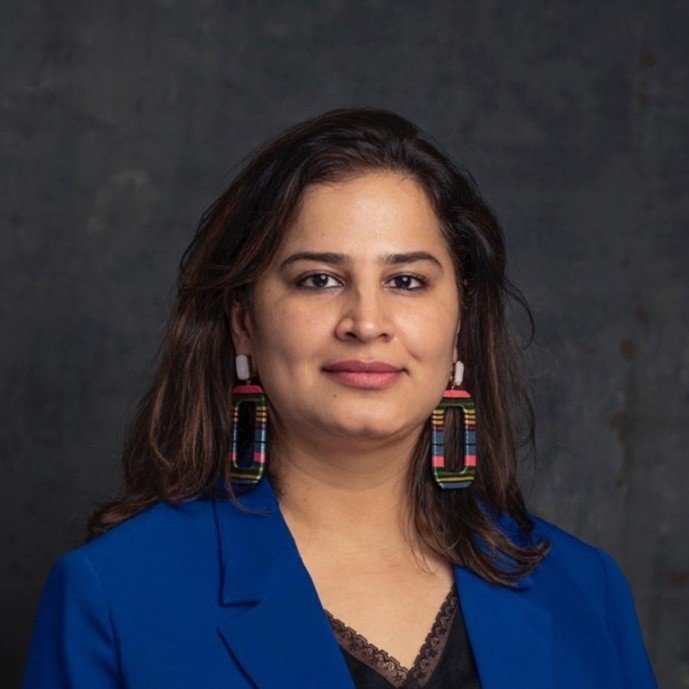Daring voices: Kanu batra
Welcome to Daring Voices, our series spotlighting the founders in the Daring Capital community. In each edition, we sit down with a founder to hear their journey in their own words: from their origin story, to the challenges they’ve faced, and the lessons they’ve learned along the way.
This week, we talk to Kanu Batra, founder of Speek.
What problem is your business solving, and what inspired you to tackle it?
At Speek, we’re addressing the urgent mental health crisis among young people, particularly the rise in self-harm. One in five teenagers today is self-harming these are desperate times. What inspired me is lived experience. I've seen first-hand the devastating impact of severe mental health issues within my own family. That made the problem deeply personal, and it became impossible to ignore.
We’re building an end-to-end solution that goes beyond access. Speek reimagines the entire patient journey from assessment through care and includes the whole family in the process. It's a more holistic and sustainable approach than point solutions we’ve seen so far.
Why does solving this problem matter to you personally?
Mental health isn’t just a professional mission it’s personal. Growing up around severe mental health challenges left a lasting mark on me. That experience is what drives me. It’s why I understand the stakes and the urgency.
Why is now the right time to solve this problem?
Now is absolutely the right time. First, the need is overwhelming self-harm rates among teens are skyrocketing. Second, the science, the technology, and the public readiness are all finally aligned. We’re at a point where a scalable, inclusive, tech-enabled solution is not only possible but necessary.
Waiting would only make things worse. The longer we delay, the more families spiral in isolation, and more young people suffer in silence. We can’t afford that.
How does your solution stand out from existing alternatives?
Most mental health solutions today focus on access getting a single session or connecting with a therapist. Speek is different. We’re focused on the journey, not just a point in time. From assessment to recovery, we support both the young person and their family.
Families tell us the biggest difference is hope finally, something exists that feels like it could really work. We’ve built a learning loop around their needs, making the process adaptive, human-centred, and inclusive. We're not just inspired by past models like teletherapy we’re building on them.
What does success look like to you—not just financially, but in terms of impact?
Success is when young people know Speek exists and they come to us when they need help. In 5 to 10 years, I want us to be the go-to platform for complex youth mental health, from self-harm to PTSD and trauma.
Have you ever had to choose between your mission and making a profit? What happened?
Not yet, but I know that moment may come. So far, we’ve found a way to do both. Our gross margins are healthy around 50% while cutting the cost of care in half for families. That’s a win-win, but it’s taken careful planning and prioritizing impact from day one.
We measure success in outcomes, not just revenue. That lens helps us stay aligned.
What’s been your biggest challenge so far, and how did you get through it?
Selling into systems as an early-stage startup is incredibly hard especially with limited resources. The cycle is slow, and the risk is running out of funds before the first contract lands. We made a strategic decision: prioritise distribution and partnerships even over product. That kept us alive and gave us time to learn. Patience, focus, and an amazing team made the difference.
What achievement are you most proud of to date?
Without question: the 473 families we've positively impacted so far. That number isn’t just a metric it’s real lives changed. What makes me proud is that every one of those families found some hope, some clarity, or some relief because of what we built. And it’s a team achievement we did this together.
What’s your long-term vision for the business and the change you want to create?
I want Speek to become the trusted platform for complex mental health care in youth. If we succeed, young people will no longer fall through the cracks. Families will know where to go. And mental health care will become proactive, continuous, and truly inclusive.
We’re not just building a company we’re trying to reshape a broken system. And we plan to stay grounded in evidence, ethics, and empathy as we grow.
What advice would you give to other underrepresented founders just starting their fundraising journey?
It will be hard but it's doable. My advice: build traction before chasing capital. Let the product Speek. And find your people mentors, peers, even funders who believe in what you’re solving. I wish someone had told me early on that slow progress is still progress. Community matters. And above all, your mission is your superpower stay rooted in it.
What do you think needs to change about the fundraising ecosystem?
Fundraising needs to become more evidence-based, not just concept-driven. Right now, too many decisions are made based on pitch polish instead of real-world validation.
We need to shift toward rewarding traction, mission integrity, and proven impact especially for solutions tackling deeply human problems like mental health.
If you’d like to find out more about Speek, you can visit their website.
A big thank you to Kanu for sharing her journey. You can catch the next in the Daring Voices series next week.
Jem
and the team at Daring Capital

